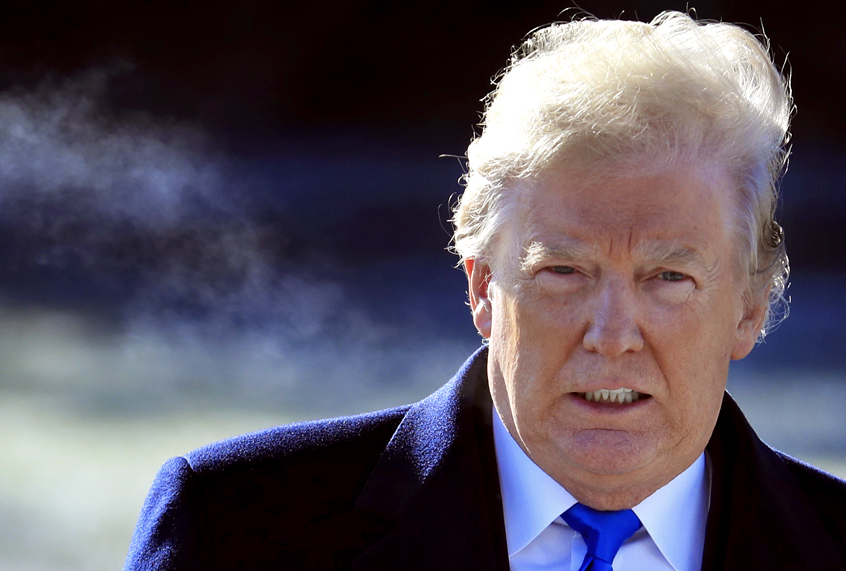On the first day of his trip to Davos, Switzerland for the World Economic Forum, President Donald Trump sought the spotlight, emerging from his exile from the media while attending a conference for some of the world’s wealthiest and most important people.
“I think the feeling is mutual from the standpoint of liking each other a lot,” Trump said during a joint press conference with British Prime Minister Theresa May, referring to reports that his diplomatic and personal relationship with May was strained. “And so that was a little bit of a false rumor out there. I just wanted to correct it, frankly, because we have great respect for everything you’re doing. And we love your country because it’s truly great.”
But May’s response was less certain. The prime minister is boxed in, politically. If she said she got along well with Trump, she’d be spitting in the face of a country that was ready to protest him; if she said she didn’t like him, she’d lose an ally, in the thin-skinned world leader. So, she skirted the question.
“We’ve had — as you say, we’ve had a great discussion today,” May told Trump and reporters. “And we continue to have that really special relationship between the U.K. and the United States, standing shoulder-to-shoulder because we’re facing the same challenges across the world. And as you say, we’re working together to defeat those challenges and to meet them.”
By contrast, Israeli Prime Minister Benjamin Netanyahu was effusive in his praise for Trump, particularly because of the president’s controversial decision to move the American embassy in that country from Tel Aviv to Jerusalem.
“I want to say that this is a historic decision that will be forever etched in the hearts of our people for generations to come,” Netanyahu told Trump and reporters. “People say that this pushes peace backward. I say it pushes peace forward because it recognizes history, it recognizes the present reality, and peace can only be built on the basis of truth. And by recognizing this history, you’ve made history. And we will always remember that.”
Netanyahu also praised Trump for his opposition to the Iran nuclear deal and for having “stood up for Israel at the U.N. in a remarkable way,” emphasizing that “I want to express the appreciation of the people of Israel to you.”
Trump responded to Netanyahu’s glowing praise first by reaffirming his pro-Israel views. Then, in a move that can only help the peace process, Trump took a swipe at Netanyahu’s Palestinian counterpart, President Mahmoud Abbas, for refusing to meet with Vice President Mike Pence last week — while threatening them with money.
“And when they disrespected us a week ago by not allowing our great Vice President to see them — and we give them hundreds of millions of dollars in aid and support — tremendous numbers; numbers that nobody understands,” Trump told Netanyahu and the reporters. “That money is on the table, and that money is not going to them unless they sit down and negotiate peace.”
For Trump, signs of respect from foreign leaders have developed a particular import. His various awkward handshakes with French President Emmanuel Macron became the source of considerable speculation about Trump’s relationship with the centrist leader. Last year, Trump aroused controversy when he appeared to rudely push aside Montenegro Prime Minister Duško Marković during a photo opportunity at the new NATO headquarters in Brussels.

